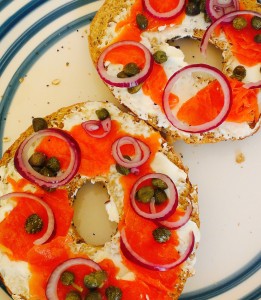- Re-adjust Your Goals
It’s believed that two thirds of us in the UK will be overweight by 2025, so we need to get serious about shedding excess weight. But if you focus on looking slim – rather than being healthy – it might actually work against you.1,2 Losing weight to look good, rather than optimising health, just doesn’t seem to be as effective long-term.3 This is borne out by what we know about parents unwittingly putting their child at an increased risk for eating disorders later in life by focusing on their child’s weight, rather than giving positive messages about healthy eating in general. Might this also explain why some adults have struggled with weight issues since adolescence?4 The self-determination theory suggests that having full autonomy in the choices we make, rather than feeling controlled, can make all the difference when it comes to weight loss. 5,6,7 This means that wanting to lose weight because of how you think others perceive you is less effective than deciding to lose weight because you yourself want to be healthy. So, although it sounds counter intuitive, lightening up about your size, and genuinely embracing improved health might be the first step you need to take.

- Forget Fad Diets
Fad diets abound. A library’s worth of new dieting books will be hitting the bookshelves for 2016! The titles are designed to entice all types of dieters – promising the world, but for most, failing to deliver in the long term. In fact this kind of approach often leading to increased weight gain. 8,9,10 So save your money, forget the “miracle diet” and spend your time doing something more fun, interesting and worthwhile….

- …Create, don’t Vegetate
“Veggin’ out” in front of a screen encourages increased food intake, poorer food choices and increased weight. 11-16 Regular junk food / TV binges can become a bad habit, eating up hours, adding pounds to the waistline and increasing your chances of chronic disease, binge eating and depression.17-22 Action TV in particular is associated with a greater intake of poor quality food, 23 a fact that will come as no surprise to the “popcorn inhalers” at the movies. The average Brit spends 3 hours and 40mins per day watching TV, and it’s thought that longer viewing binges (back-to-back Nordic Noir box sets, anyone?) may be taking its toll on the nation’s cognitive health.24 Maybe you are just chilling for a few hours, in which case, enjoy! But if you find yourself habitually using screen time to distract yourself from stress or problems – tuning in, to tune out – you might be creating more problems in the long run. On the flip side, being creative can improve brain function and quality of life as we age. 25-29 Start swapping screen time for something new a few hours a week, it could be the start of better health, and a more interesting, creative and happier life.

References
(1) Cheskin, L. J., & Donze, L. F. (2001). Appearance vs health as motivators for weight loss. JAMA, 286(17), 2160-2160.
(2) Calder, R. K., & Mussap, A. J. (2015). Factors influencing women’s choice of weight-loss diet. Journal of health psychology, 20(5), 612-624.
(3) Putterman, E., & Linden, W. (2004). Appearance versus health: does the reason for dieting affect dieting behavior?. Journal of Behavioral Medicine, 27(2), 185-204.
(4) Berge, J. M., MacLehose, R., Loth, K. A., Eisenberg, M., Bucchianeri, M. M., & Neumark-Sztainer, D. (2013). Parent conversations about healthful eating and weight: associations with adolescent disordered eating behaviors. JAMA pediatrics, 167(8), 746-753.
(5) Teixeira, P. J., Silva, M. N., Mata, J., Palmeira, A. L., & Markland, D. (2012). Motivation, self-determination, and long-term weight control. International Journal of Behavioral Nutrition and Physical Activity, 9(1), 22.
(6) Georgiadis, M. M., Biddle, S. J., & Stavrou, N. A. (2006). Motivation for weight-loss diets: A clustering, longitudinal field study using self-esteem and self-determination theory perspectives. Health Education Journal, 65(1), 53-72.
(7) Theory of Motivation Guides Our Approach To Helping People. University of Rochester Medical Centre https://www.urmc.rochester.edu/community-health/programs-services/healthy-living-center/self-determination-theory.aspx
(8) Pietiläinen, K. H., Saarni, S. E., Kaprio, J., & Rissanen, A. (2012). Does dieting make you fat? A twin study. International Journal of Obesity, 36(3), 456-464.
(9) Siahpush, M., Tibbits, M., Shaikh, R. A., Singh, G. K., Kessler, A. S., & Huang, T. T. K. (2015). Dieting Increases the Likelihood of Subsequent Obesity and BMI Gain: Results from a Prospective Study of an Australian National Sample. International journal of behavioral medicine, 22(5), 662-671.
(10) Dulloo, A. G., Jacquet, J., Montani, J. P., & Schutz, Y. (2015). How dieting makes the lean fatter: from a perspective of body composition autoregulation through adipostats and proteinstats awaiting discovery. Obesity Reviews, 16(S1), 25-35.
(11) Börnhorst, C., Wijnhoven, T. M., Kunešová, M., Yngve, A., Rito, A. I., Lissner, L., … & Breda, J. (2015). WHO European Childhood Obesity Surveillance Initiative: associations between sleep duration, screen time and food consumption frequencies. BMC public health, 15(1), 1.
(12) Boulos, R., Vikre, E. K., Oppenheimer, S., Chang, H., & Kanarek, R. B. (2012). ObesiTV: how television is influencing the obesity epidemic. Physiology & behavior, 107(1), 146-153.
(13) Ciccone, J., Woodruff, S. J., Fryer, K., Campbell, T., & Cole, M. (2013). Associations among evening snacking, screen time, weight status, and overall diet quality in young adolescents. Applied Physiology, Nutrition, and Metabolism, 38(7), 789-794.
(14) Tucker, L. A., & Bagwell, M. (1991). Television viewing and obesity in adult females. American Journal of Public Health, 81(7), 908-911.
(15) Tucker, L. A., & Friedman, G. M. (1989). Television viewing and obesity in adult males. American Journal of Public Health, 79(4), 516-518.
(16) Braude, L., & Stevenson, R. J. (2014). Watching television while eating increases energy intake. Examining the mechanisms in female participants. Appetite, 76, 9-16.
(17) Zhai, L., Zhang, Y., & Zhang, D. (2014). Sedentary behaviour and the risk of depression: a meta-analysis. British journal of sports medicine, bjsports-2014.
(18) Kremer, P., Elshaug, C., Leslie, E., Toumbourou, J. W., Patton, G. C., & Williams, J. (2014). Physical activity, leisure-time screen use and depression among children and young adolescents. Journal of Science and Medicine in Sport, 17(2), 183-187.
(19) Breland, J. Y., Fox, A. M., & Horowitz, C. R. (2013). Screen time, physical activity and depression risk in minority women. Mental health and physical activity, 6(1), 10-15.
(20) Davies, C. A., Vandelanotte, C., Duncan, M. J., & van Uffelen, J. G. (2012). Associations of physical activity and screen-time on health related quality of life in adults. Preventive medicine, 55(1), 46-49.
(21) Hamer, M., Poole, L., & Messerli-Bürgy, N. (2013). Television viewing, C-reactive protein, and depressive symptoms in older adults. Brain, behavior, and immunity, 33, 29-32.
(22) Burmeister, J. M., & Carels, R. A. (2014). Television use and binge eating in adults seeking weight loss treatment. Eating behaviors, 15(1), 83-86.
(23) Tal, A., Zuckerman, S., & Wansink, B. (2014). Watch what you eat: action-related television content increases food intake. JAMA Internal Medicine, 174(11), 1842-1843.
(23) Hoang, T. D., Reis, J., Zhu, N., Jacobs, D. R., Launer, L. J., Whitmer, R. A., … & Yaffe, K. (2016). Effect of Early Adult Patterns of Physical Activity and Television Viewing on Midlife Cognitive Function. JAMA psychiatry, 73(1), 73-79.
(24) Fisher, N., Lattimore, P., & Malinowski, P. (2016). Attention with a mindful attitude attenuates subjective appetitive reactions and food intake following food-cue exposure. Appetite, 99, 10-16.
(25) Greaves, C. J., & Farbus, L. (2006). Effects of creative and social activity on the health and well-being of socially isolated older people: outcomes from a multi-method observational study. The Journal of the Royal Society for the Promotion of Health, 126(3), 134-142.
(26) Leckey, J. (2011). The therapeutic effectiveness of creative activities on mental well‐being: a systematic review of the literature. Journal of psychiatric and mental health nursing, 18(6), 501-509.
(27) Ueno, K., Takahashi, T., Takahashi, K., Mizukami, K., Tanaka, Y., & Wada, Y. (2015). Neurophysiological basis of creativity in healthy elderly people: A multiscale entropy approach. Clinical Neurophysiology, 126(3), 524-531.
(28) Kongkasuwan, R., Voraakhom, K., Pisolayabutra, P., Maneechai, P., Boonin, J., & Kuptniratsaikul, V. (2015). Creative art therapy to enhance rehabilitation for stroke patients: A randomized controlled trial. Clinical rehabilitation, 0269215515607072.
(29) Uttley, L., Scope, A., Stevenson, M., Rawdin, A., Buck, E. T., Sutton, A., … & Wood, C. (2015). Clinical effectiveness of art therapy: quantitative systematic review.








